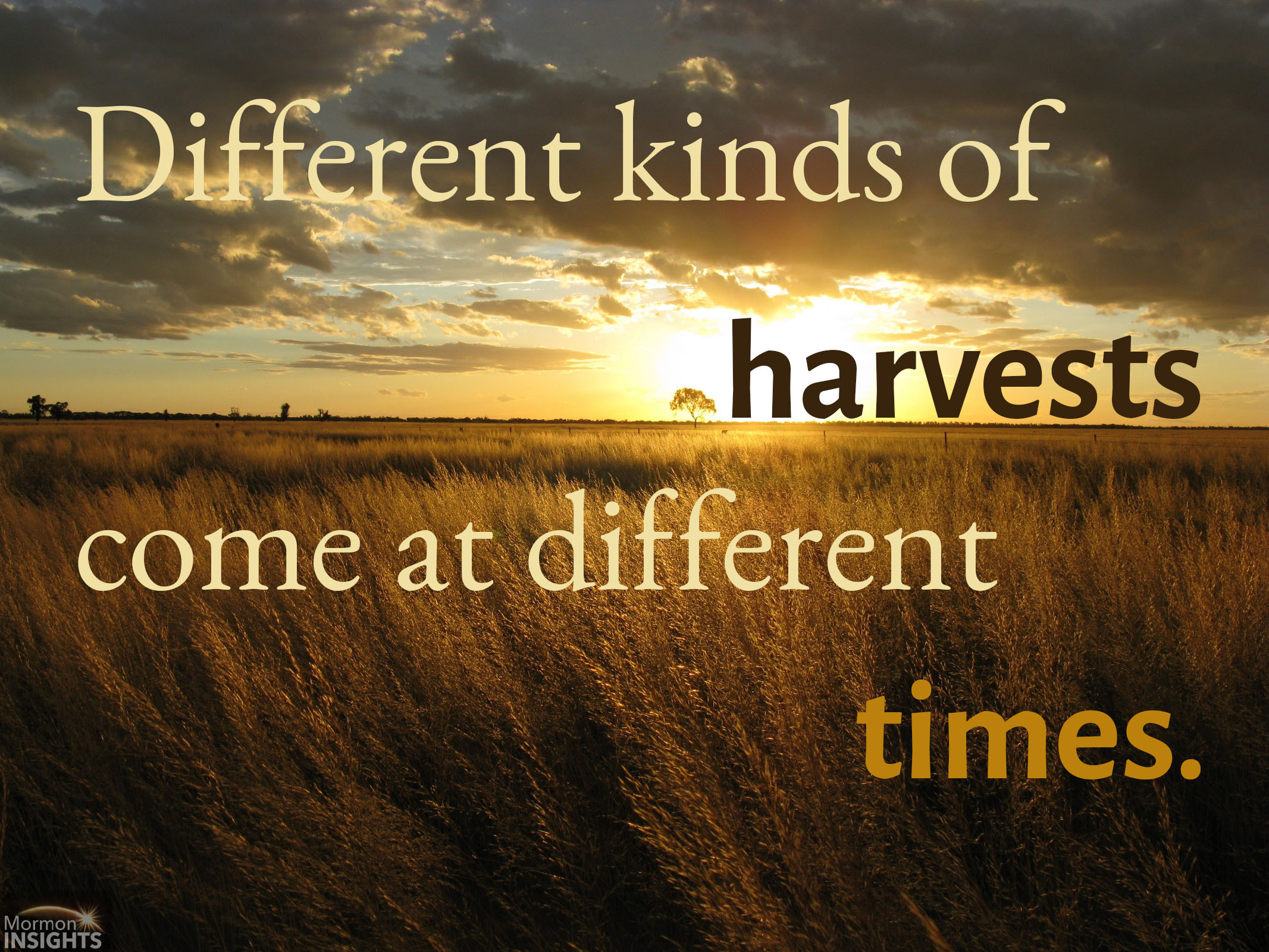If you keep working and waiting without getting anything back, don’t give up. You may be making a long-term investment.
 “What’s the use? What am I getting out of this? Am I really willing to keep working even though I’m getting nothing in return?” President Henry B. Eyring, while serving as Commissioner of the Church Educational System, addressed these difficult sentiments in a BYU devotional titled “A Law of Increasing Returns.”
“What’s the use? What am I getting out of this? Am I really willing to keep working even though I’m getting nothing in return?” President Henry B. Eyring, while serving as Commissioner of the Church Educational System, addressed these difficult sentiments in a BYU devotional titled “A Law of Increasing Returns.”
Most of us like working only when we know it will pay off. When we mow the lawn, we often cut the grass just once. Mowing it again in another direction would be the same effort with less improvement. That’s the law of diminishing returns.
In gardening, some plants grow quickly and others grow slowly. Different kinds of harvests come at different times. And in life, President Eyring explains, the benefits of our efforts can also come quickly or slowly.
Most of us have experience with metaphorical early crops, like good grades or work bonuses. But the most important crops are often late ones—crops that require immense time and effort before they begin growing. But once we reap, we reap almost endlessly. This is a law of increasing returns.
Telling the difference between life’s early crops and its late ones can be difficult. And it’s hard to cultivate late crops—even valuable ones. Remembering that late crops are opportunities and not tests may help steady us. And while we’re waiting for our harvest, we can reassure others who are also struggling.
We constantly make decisions about whether waiting is worth it. Be patient: your harvest will amaze you.
Read Henry B. Eyring’s full article, “A Law of Increasing Returns.”
Source: BYU Speeches
—Jonathan Jibson, Mormon Insights
feature image by lds media library



I think this is really true for spiritual things too, like when we are trying to learn to exercise faith in a particular principle or commandment. Sometimes it feels like we aren’t making any improvement at all, and then after lots of hard work, we look back and can see the slow but sure progress and new knowledge that we’ve gained.
I really like this article! It’s important to keep in mind that even though we don’t see the rewards now, doesn’t mean they aren’t coming.
I this article really speaks to those of us who are perfectionists. I know often times I want things to go a certain way at a certain time and I don’t want to wait long for the outcome. But we don’t always have control over the outcome of our hard work, no matter how hard we try to control the outcome. I think if we are willing to see that our hard work will pay off in positive ways, we can also relax a little bit in the things we try to control.
Oh my goodness this article is beautiful. I sometimes think, just like it says here, “What’s the use? . . . Am I really willing to keep working even though I’m getting nothing in return?” I like the reminder that some plants grow more slowly, and that the very most important ones often take the longest, sometimes requiring “immense time and effort” before they even start to grow. It’s worth it in the end. And the longer it takes, the more glorious the harvest.
Sometimes we undertake something with a certain expectation about what the outcome should be or look like, forgetting that oftentimes our preconceived idea is nowhere close to the truth–our version of the truth. in turn, we don’t recognize what really has taken root and what form its final form will take. Thanks for the reminder to patiently endure.
Pingback: How to Find Meaning in Your Job - Latter-day Saint Insights
This is a really good message, and I love how the article mentions that sometimes we should be careful to not put too much effort at once into something, and instead space out our efforts for the best effect.